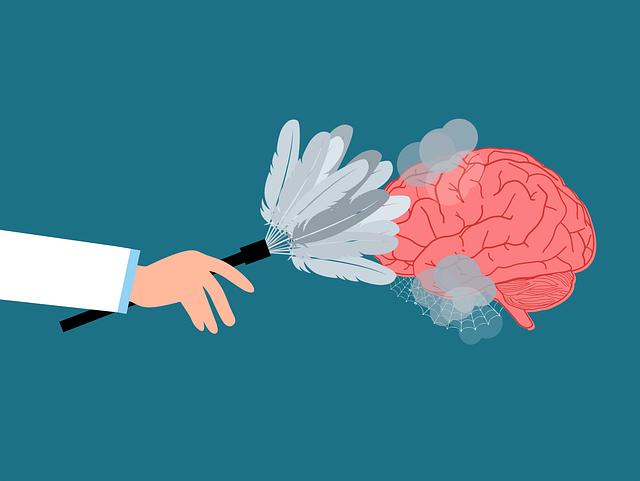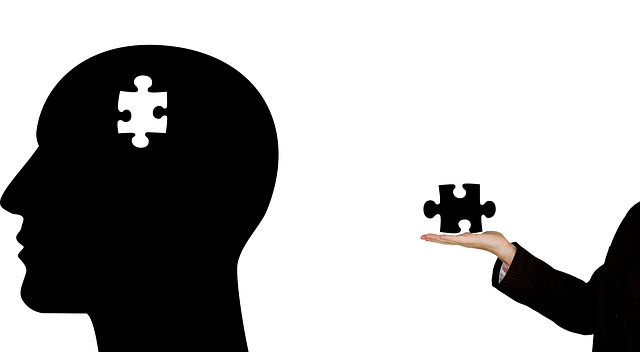Wheat Ridge Bipolar Disorder Therapy emphasizes a holistic approach to managing this mental health condition, combining professional therapy with personalized self-care practices. By identifying and addressing personal stressors, incorporating mindfulness and relaxation techniques, prioritizing physical health through exercise and diet, and structuring routines with empathy-focused activities, individuals can better regulate moods, increase productivity, and improve overall quality of life. Additionally, addressing underlying trauma and advocating for mental health policy changes enhance therapeutic outcomes, providing a comprehensive strategy to combat bipolar disorder.
Self-care is an essential aspect of managing bipolar disorder, playing a crucial role in maintaining emotional stability and overall wellbeing. This comprehensive guide delves into effective self-care practices tailored for individuals navigating bipolar disorder. From understanding the profound impact of self-care to identifying personal stressors and incorporating mindfulness techniques, we explore practical strategies. Learn how nurturing physical health and establishing supportive routines can significantly enhance your journey towards a balanced life, offering valuable insights from Wheat Ridge Bipolar Disorder Therapy experts.
- Understanding the Importance of Self-Care for Bipolar Disorder Management
- Identifying Personal Stressors and Triggers
- Incorporating Mindfulness and Relaxation Techniques
- Nurturing Physical Health for Emotional Wellbeing
- Building a Supportive Routine: Tools for Sustaining Self-Care
Understanding the Importance of Self-Care for Bipolar Disorder Management

Self-care is an integral part of managing bipolar disorder, a condition characterized by extreme mood swings. For individuals navigating this mental health challenge, prioritizing self-wellness can be transformative. Wheat Ridge Bipolar Disorder Therapy emphasizes the significance of incorporating various self-care practices into daily routines.
Effective management involves a holistic approach, addressing not just symptoms but also fostering resilience and overall well-being. Mental Health Policy Analysis and Advocacy plays a crucial role in understanding societal factors influencing self-care. Building empathy through Trauma Support Services can enhance therapeutic outcomes, as it addresses underlying trauma often associated with bipolar disorder. By combining professional therapy with personalized self-care strategies, individuals can better regulate moods, increase productivity, and improve overall quality of life.
Identifying Personal Stressors and Triggers

Recognizing personal stressors and triggers is a crucial step in improving self-care practices. It involves becoming attuned to the unique factors that cause stress, anxiety, or emotional distress. This could be anything from work-life balance issues, financial worries, or even specific situations like social gatherings or public speaking. For individuals dealing with bipolar disorder, Wheat Ridge Bipolar Disorder Therapy offers specialized support in navigating these challenges. Through therapy, one learns to identify patterns and develop coping mechanisms tailored to their needs, fostering better mental health management.
Understanding triggers is essential for effective risk management planning among mental health professionals. By recognizing what sets off emotional instability, individuals can proactively implement strategies to mitigate those risks. This not only aids in burnout prevention but also enhances confidence boosting through a sense of control and self-awareness. Whether it’s setting boundaries, practicing mindfulness, or adopting healthy coping mechanisms, identifying personal stressors is the first step towards cultivating resilience and overall well-being.
Incorporating Mindfulness and Relaxation Techniques

Incorporating mindfulness and relaxation techniques into daily routines can significantly enhance one’s mental wellness, particularly for individuals managing conditions like bipolar disorder. Wheat Ridge Bipolar Disorder Therapy emphasizes the power of these practices in stabilizing moods and mitigating symptoms. Through mindfulness meditation, deep breathing exercises, or yoga, individuals learn to stay present, reduce stress, and cultivate a deeper sense of calm. These techniques not only serve as coping skills development tools but also provide crisis intervention guidance when faced with intense emotional states.
By regularly engaging in such practices, one can foster improved self-care habits. This proactive approach allows for better management of bipolar disorder symptoms, promoting overall mental health and resilience. Incorporating relaxation strategies is a game-changer, helping individuals regain control and find inner peace amidst life’s challenges. It’s an essential step towards navigating the complexities of bipolar disorder while cultivating a vibrant and balanced mental wellness routine.
Nurturing Physical Health for Emotional Wellbeing

Nurturing our physical health is an essential aspect of maintaining and enhancing emotional wellbeing, especially for those managing conditions like bipolar disorder. Regular exercise, a balanced diet, and sufficient sleep are cornerstone self-care practices that can significantly impact mood regulation and overall mental resilience. Physical activity, in particular, has been shown to release endorphins, our body’s natural mood elevators, which can help reduce symptoms of depression and anxiety.
In the context of Wheat Ridge Bipolar Disorder Therapy, prioritizing self-care isn’t just a recommendation; it’s a vital strategy for managing symptoms and improving quality of life. Public Awareness Campaigns Development around mental health can further underscore the importance of physical well-being, encouraging individuals to adopt healthier habits as part of their broader self-care routines. By integrating these practices into daily life, individuals can foster better emotional balance, boosting their ability to navigate life’s challenges with resilience and positivity.
Building a Supportive Routine: Tools for Sustaining Self-Care

Building a supportive routine is an essential tool for sustaining self-care practices. Incorporating regular activities that nurture your mental wellness and emotional healing processes can significantly impact your overall well-being, especially for those managing conditions like bipolar disorder. Wheat Ridge Bipolar Disorder Therapy emphasizes the importance of structured routines in stabilizing moods and mitigating symptoms.
Empathy-building strategies play a pivotal role in creating this supportive routine. Techniques such as mindful meditation, journaling, and engaging in creative outlets encourage self-reflection and emotional expression. By dedicating time to these practices daily, individuals can enhance their ability to process emotions, fostering improved mental health. These routines not only provide a sense of structure but also offer moments for calm and self-care, which are crucial for managing stress and promoting resilience.
Incorporating self-care practices is a powerful tool in managing bipolar disorder, as evidenced by many successful cases of Wheat Ridge Bipolar Disorder Therapy. By understanding personal stressors, adopting mindfulness techniques, prioritizing physical health, and building supportive routines, individuals can take control of their emotional well-being. These strategies are essential steps towards a more balanced and fulfilling life, offering a holistic approach to care that fosters resilience and overall mental health.














